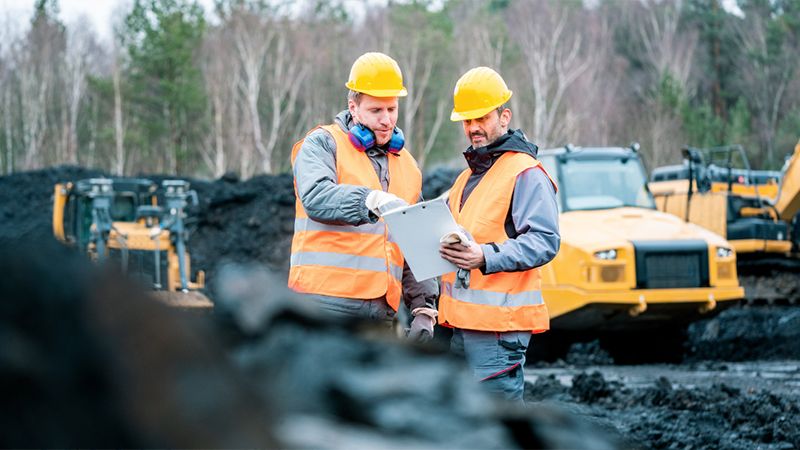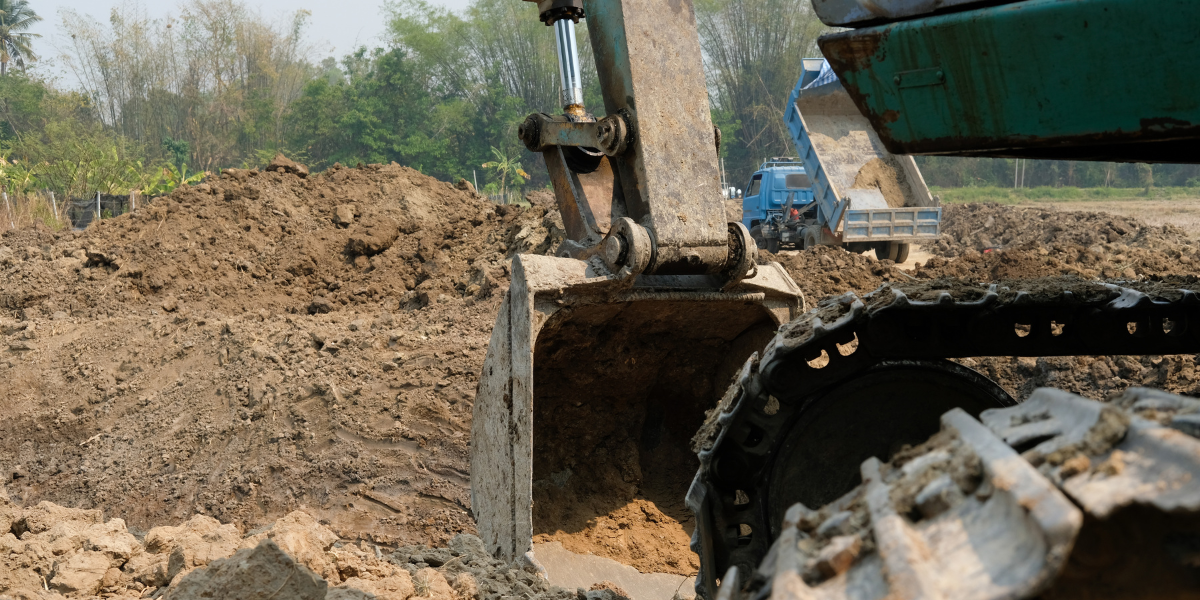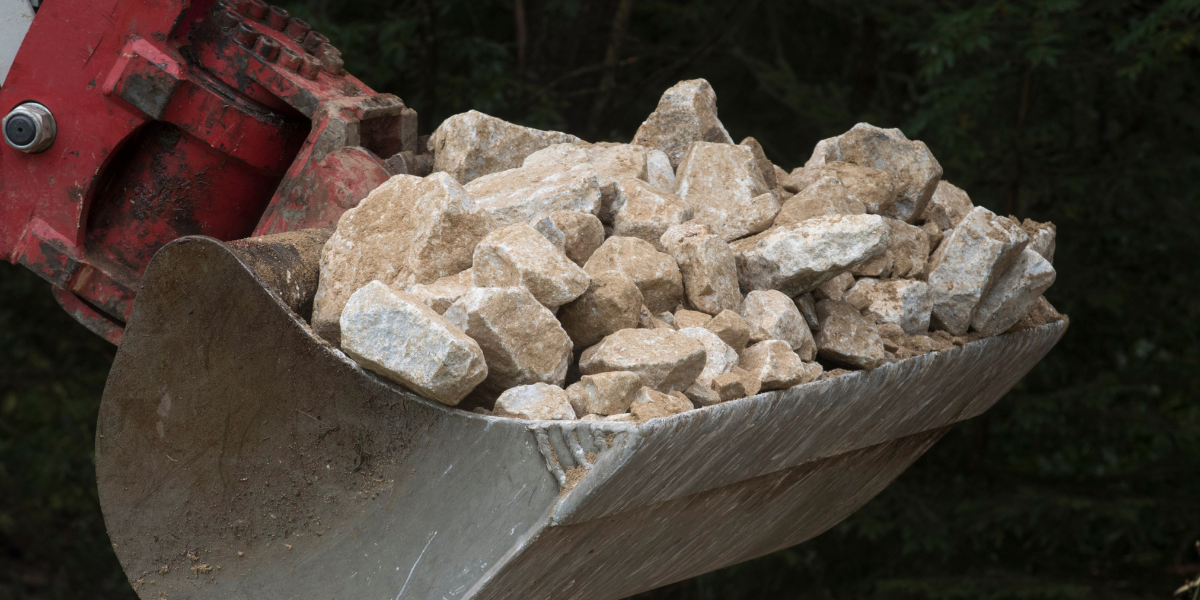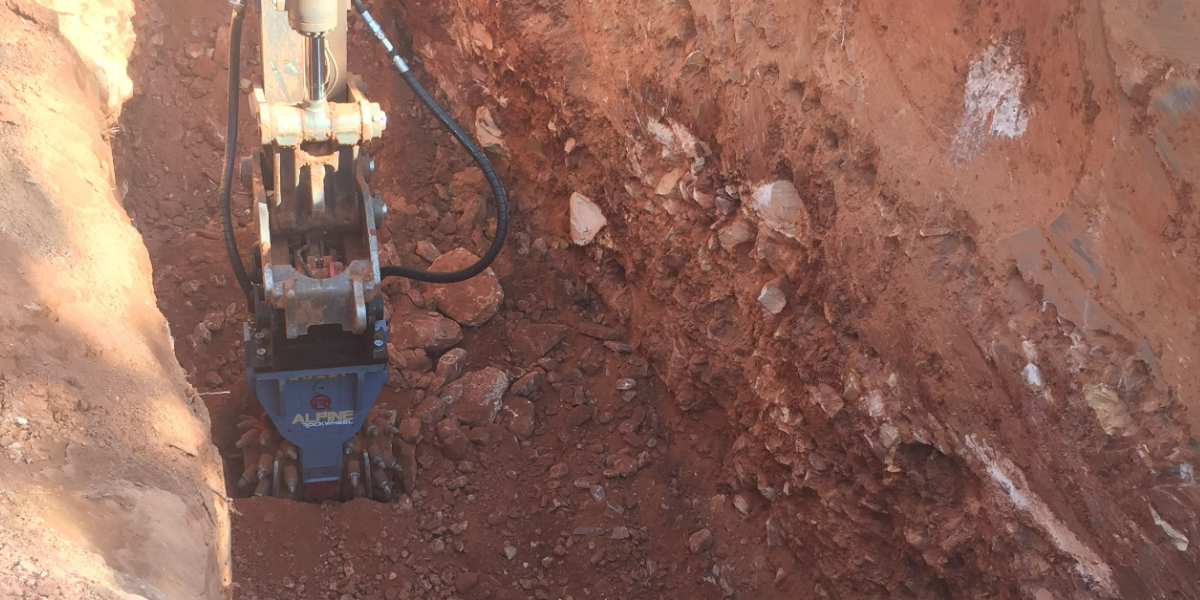How Long Does Soil Excavation Take? Here’s What You Need to Know

Soil excavation is the foundation of any construction project, whether you’re laying a foundation, installing underground utilities, or preparing land for a new build. So, how long does soil excavation take?
It depends on factors like site size, soil type, and weather, but it generally ranges from a few days to several weeks. With the right tools, like a drum cutter, and a skilled excavation team, even tough terrain can be handled efficiently.
In this blog, we’ll break down the entire excavation process, explain what affects timelines, and offer tips for handling obstacles like stubborn clay or rocky soil. Ready to get the full picture of how to keep your project moving on time? Let’s dig in.
Key Takeaways
- The timeline for soil excavation varies based on site size, soil type, and weather, ranging from a few days to several weeks.
- Proper planning and expert handling ensure efficient excavation work, even when dealing with tough conditions like clay or large boulders.
- Partnering with a skilled team like RockZone Americas guarantees precise, timely excavation backed by advanced tools and decades of industry expertise.
What Is the Excavation Process?

The excavation process is all about precision and power—moving earth, rocks, and other materials to get a construction site ready for action. It starts with clearing the land, digging trenches, and laying the groundwork for everything from foundation work to underground utilities.
No two jobs are alike. Factors like soil and weather conditions will impact how long it takes, but with the right approach, a skilled team, and top-tier tools, even the toughest tasks are manageable.
Key Factors That Impact Soil Excavation Timelines
Several factors influence how long soil excavation takes, and understanding them can help set realistic expectations for any construction project:
- Soil type: Not all soil is created equal. Clay soil can be a challenge, causing machines to stick and slowing progress. Gravel or sandy soil, on the other hand, can speed up digging and hauling.
- Weather conditions: Rain, snow, or freezing temperatures can grind the process to a halt. Muddy ground or frozen soil means delays as crews wait for better conditions to safely resume work.
- Size of the excavation site: The bigger the project, the longer it will take. While a residential project like pool installation might wrap up in a few days, large commercial sites can take weeks or even months to complete.
- Soil conditions and debris: Excavating around large boulders, rocks, or debris takes extra time and effort. Heavy machinery may need to break apart these obstacles, adding hours or days to the job. In unstable soil, proper shoring is essential for safety and efficiency.
- Other factors: Factors like waiting on an approved plan, permits, or dealing with underground utilities can drag out the process. Each job and location has unique challenges that must be accounted for, so timelines vary based on these complexities.
5 Steps in the Soil Excavation Process

Excavating a construction site is a step-by-step process that requires precision and careful planning. Here are the five steps to ensure a site is properly prepared for the next phase of the construction process:
Step 1: Site assessment and planning
Before any digging begins, the excavation team conducts a thorough site assessment. This includes reviewing the soil conditions, identifying potential obstacles like large boulders, and ensuring an approved plan is in place.
Establishing corner benchmarks and verifying your alignment list are essential for keeping the project on track. This step also ensures compliance with local safety regulations, especially when working near underground utilities or in areas that require proper shoring.
Step 2: Clearing and preparing the site
Once the site is assessed, it's cleared of debris, large rocks, and old structures. Clearing these materials prepares the site for efficient excavation and gives the team a clean area to start digging.
Step 3: Digging and hauling
The real work starts here. The team uses heavy machinery like excavators to dig the site to the required depth, whether for a foundation, basement, or other construction needs.
As they excavate, the team carefully removes and hauls away soil, dirt, and debris. Challenges like clay or large boulders are managed with specialized equipment to keep the project moving.
Step 4: Grading and backfill
After excavation, the site is graded to ensure a level surface. Backfill, such as gravel or soil, is added for stability, and if needed, underground utilities are installed during this phase. Proper grading ensures the site is ready for the foundation and the rest of the construction project.
Step 5: Post-excavation cleanup
The final step in the excavation process is cleaning up the site. The site is cleaned and compacted to prepare for the next phase of construction. The team ensures everything is secure, safe, and up to regulatory standards, leaving the site ready for the build.
Why Hiring an Experienced Excavation Team is Essential
Excavation work requires expertise, precision, and safety. With the right team, your project stays on schedule, and the groundwork is done right.
Efficiency drives success. An experienced excavation team knows how to handle tough soil conditions, navigate depth requirements, and avoid delays. With the best machinery and techniques, they prevent issues like equipment getting stuck and ensure projects move smoothly.
Safety is non-negotiable. Excavation is high-stakes, and safety must come first. Skilled teams ensure proper shoring, safe trenching, and full compliance with regulations. They keep both the crew and site protected. With the right team, safety and efficiency go hand in hand, leading to faster, more reliable results.
RockZone Americas: Your Go-To Partner for Precision Excavation

For over 50 years, RockZone Americas has been a trusted leader in the construction industry, providing top-tier excavation work solutions. We pride ourselves on providing the best tools and expertise to keep projects on track. Here’s what sets us apart:
- Powerful attachments: Our Rockwheel, Rockcrusher, and Rockscreener attachments cut through rock, soil, and even concrete with ease, delivering lower noise and vibration than other tools. When precision and power are key, our attachments get the job done quickly and efficiently.
- Tailored solutions: From small-scale foundation projects to large-scale commercial excavations, we provide customized solutions built around your specific challenges. Our team works directly with you to ensure the right tools are in place for maximum efficiency.
- Expert support across North America: Backed by decades of experience and a growing dealer network, we offer local support with global expertise, ensuring your project runs smoothly from start to finish.
Need reliable excavation equipment? RockZone Americas has the tools and knowledge to handle any job. Contact us today for solutions tailored to your project.
Summary
The duration of the excavation process depends on several factors, from soil conditions to weather and site size.
It’s easy for things to go wrong—whether it's getting stuck in clay or having large boulders slow down the work—but with proper planning and expert handling, these challenges can be managed. With the right team in place, earth can be moved, soil can be stabilized, and materials can be efficiently hauled away to keep the project on track.
Selecting a professional team like RockZone Americas guarantees that every step of your excavation process is executed with precision. Our advanced equipment and decades of expertise ensure your project runs smoothly, minimizing delays and maximizing efficiency.
With us, you get good money value as we focus on delivering top-notch results that keep your build on track.
Frequently Asked Questions
How much time does it take to dig dirt?
The time to dig dirt depends on factors like soil type and the equipment used. For small construction projects, it could take a few hours, while larger excavation work might stretch into days.
Using heavy machinery like an excavator speeds up the process significantly, especially when dealing with tough earth or large volumes of dirt.
What are the processes of soil excavation?
The soil excavation process involves several steps, starting with site assessment and planning. The site is then cleared of debris, followed by digging with heavy machinery like excavators to the required depth.
After excavation, the site is graded and backfilled to prepare it for the next phase of the construction process. The final step is post-excavation cleanup to ensure the site is safe and ready for building.
How do you calculate excavation time?
To calculate excavation time, consider factors like soil type, project size, equipment used, and how much material needs to be moved.
Measure the volume of the area to be excavated (length x width x depth) and factor in the machinery’s capacity and speed to determine how long it will take to dig and haul away the dirt.
